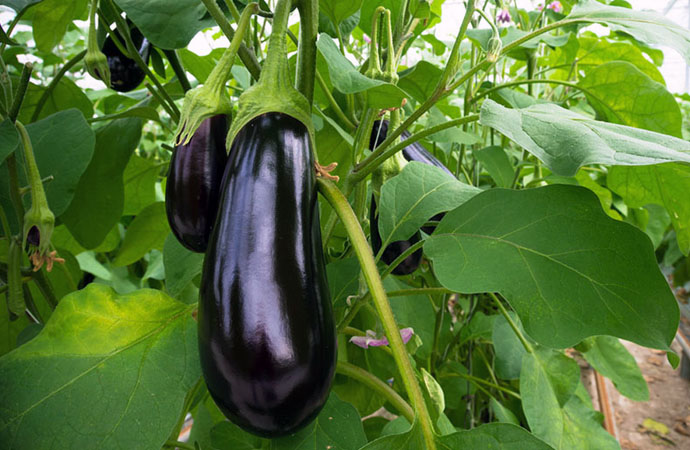Farmers, scientists, environmentalists and concerned citizens filed a petition asking the Supreme Court to issue a writ of kalikasan and a Temporary Environmental Protection Order (TRO) against the commercial cultivation of genetically modified rice and eggplant varieties in the country.
The petitioners, which include Magsasaka at Siyentipiko para sa Pag Unlad ng Agrikultura (Masipag), Greenpeace Southeast Asia-Philippines, Southeast Asia Regional Initiatives for Community Empowerment, Kilusang Magbubukid ng Pilipinas, Climate Change Network for Community-based Initiatives and Salinlahi Alliance for Children’s Concerns Inc. specifically opposed the commercial cultivation of Golden Rice and Bt eggplant.
Also named as petitioners were concerned individuals, including former senator Orly Mercado, Teodoro Mendoza, Liza Maza, Reginald Vallejos, Mae Paner, Virginia Nazareno, Jocelyn Jamandron and Lauro Diego.
The petitioners said that the cultivation of genetically modified organism (GMO) crops poses risks to health, environment and biosafety.
In July 2021, the commercial propagation of Golden Rice (transformation event name: GR2E) was approved while the cultivation of Bacillus thuringiensis eggplant or Bt eggplant (transformation event name: EE-1 Eggplant) got its permit just last November 2022.
Despite strong opposition by various cause-oriented groups, the Golden Rice and Bt eggplant were the latest genetically-modified crops to be allowed cultivation in the country under a supposedly strict regulatory requirement. Back in 2012, the government had allowed the commercial cultivation of GM corn for feed and processing.
Golden Rice is a variety of rice being eyed to address vitamin-A deficiency among pregnant women and lactating mothers, and malnourished children while Bt eggplant on the other hand is a variety that is resistant to the pest fruit-and-shoot-borer. It aims to boost production of one of the most popular vegetable crops in the country.
According to Alfie Pulumbarit, national coordinator of Masipag, the issuance of a writ of kalikasan and Continuing Mandamus will protect the country’s staple crops, heirloom rice and landraces, and the traditional, resistant eggplants as well as the country’s biodiversity, environment and the Filipinos’ rights to “balanced and healthful ecology and health.”
Also, Dr. Teodoro Mendoza and Dr. Donna Ria Josue-Canacan, who are both scientists with several years of experience in studying agricultural crops including GMOs, said GMOs such as Golden Rice and Bt eggplant are characterized by uncertainties that pose biosafety, biodiversity and agronomic risks.
The scientists added that their cultivation would cause “irreversible environmental damage through contamination, cross-pollination, accidents and other means when released to the environment.”
Dr. Mendoza explained that the mixing of Golden Rice seeds and Bt eggplant seeds with non-GMO counterparts causes contamination, which is dangerous because Golden Rice and Bt eggplant are not proven to be safe for the environment and human consumption.
For Dr. Canacan, the widespread use of Bt and herbicide-tolerant crops has led to the problematic development of pest resistance, “superweeds” and secondary pests.
“The introduction of Bt eggplant and Golden Rice in the Philippines is not culturally appropriate since it will defeat the historical seed-saving and breeding practices of Filipino farmers that rely on natural biodiversity” she added.
“Our heirloom rice is at serious and high risk to be contaminated and dominated by the promiscuous GMO genes,” she said in the petition.
Named as respondents in the petition were the secretaries of the Department of Agriculture, Department of Environment and Natural Resources and Department of Health as well as the directors of the Bureau of Plant Industry, Philippine Rice Research Institute and the University of the Philippines Los Baños.
